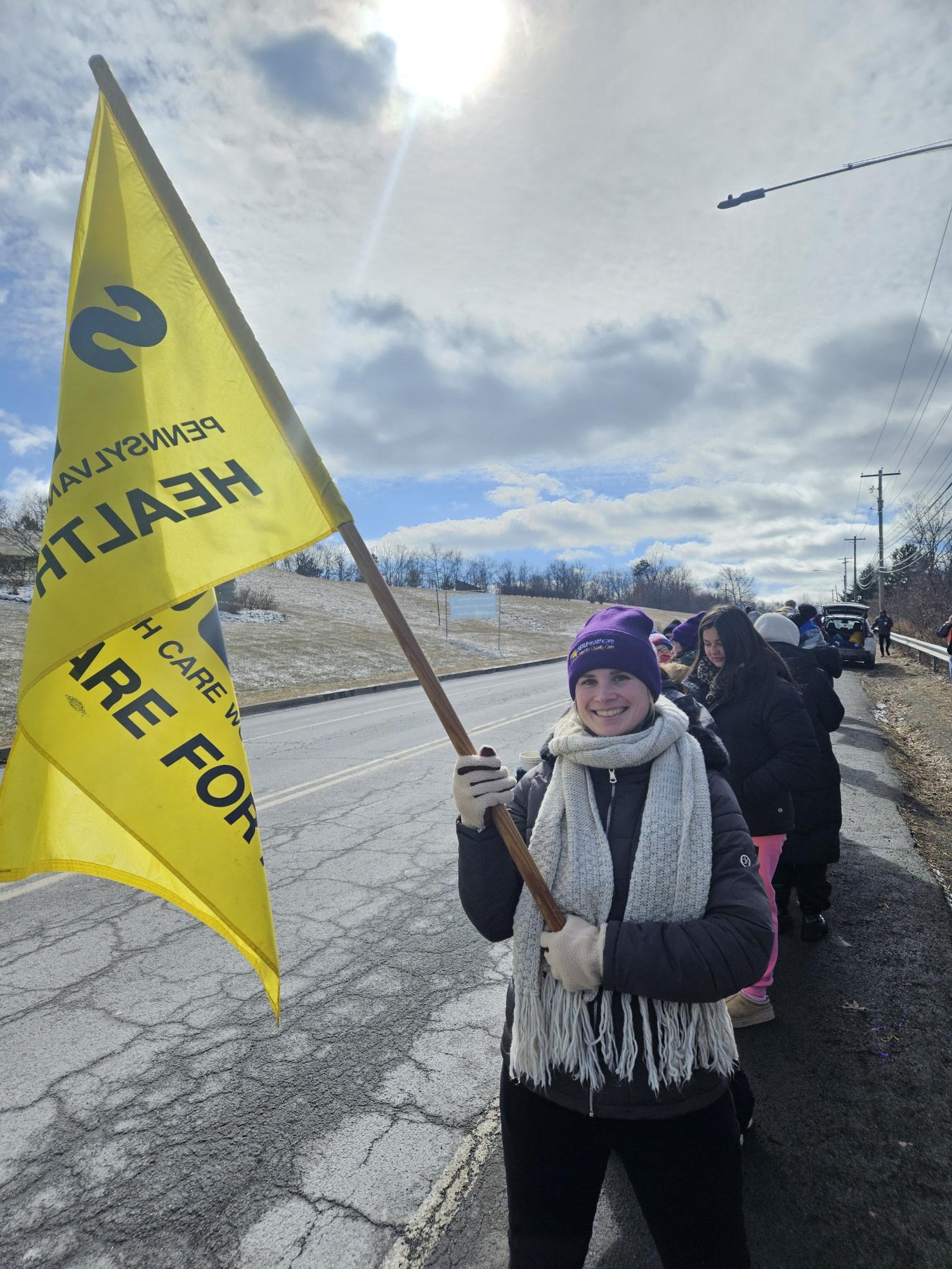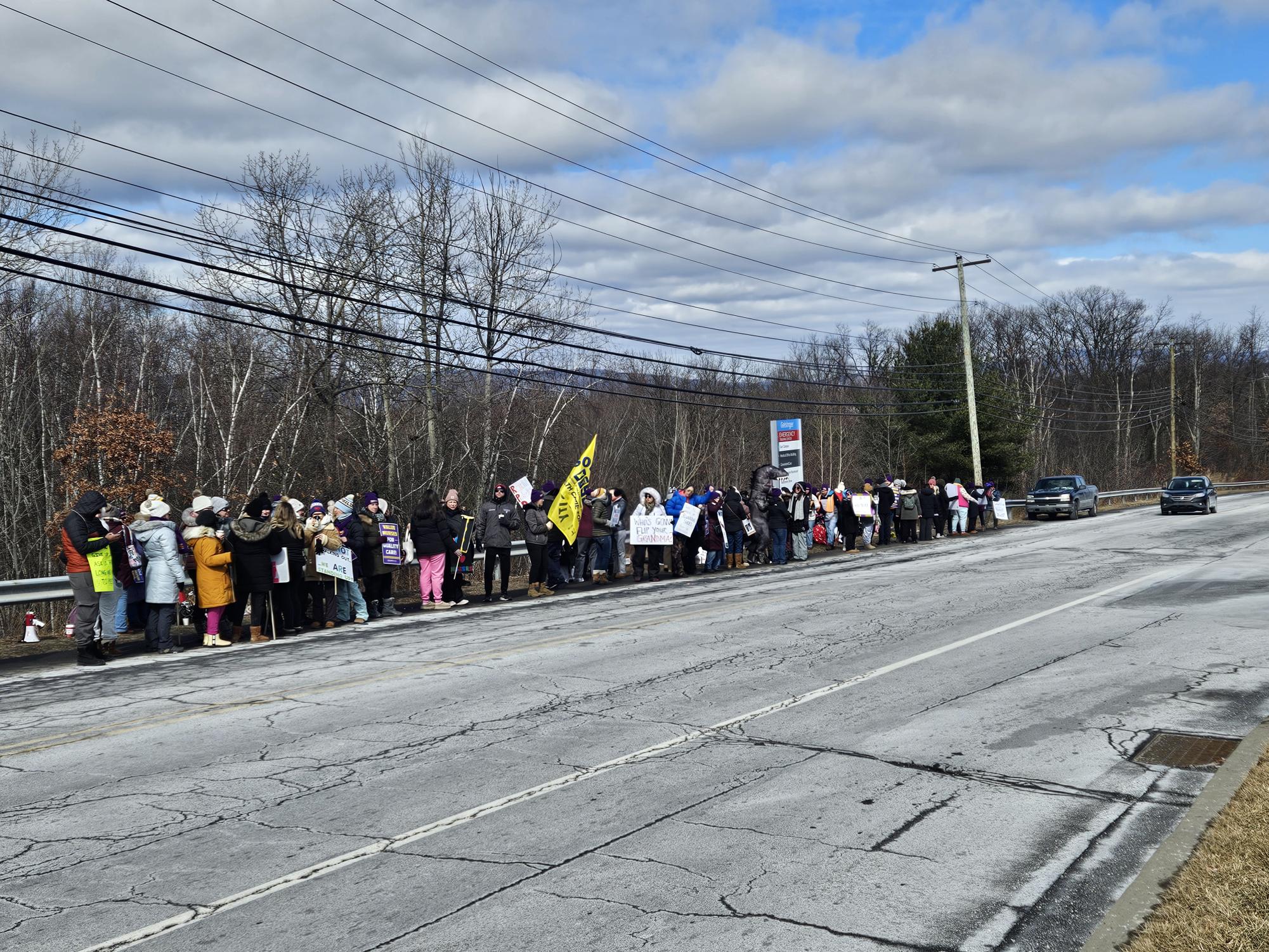Despite freezing temperatures, hundreds came out in support of the SEIU Geisinger nurses’ strike that occurred from Feb. 17-21 across multiple locations. A new contract was not reached during that time.
“We can’t bargain during a defined strike,” explained local nurses Stephanie Krugel and Kelly Loiselle. A defined strike is openly stating the period your union or group will protest.
The union could bargain during an unlimited strike but was hesitant to begin one for several reasons, including patient safety because of the potential for minimized staff.
Morale on the picket lines was high over the last two days. Several picketers expressed feelings of unity and strength from the outpouring of community support.
Hardly three minutes would go by between passing vehicles honking their horns in solidarity with the strikers outside Geisinger Wyoming Valley (GWV) on Friday. A steady influx of donated food, coffee and water kept the crowd energized to carry on their fight.
Microphones and megaphones were used to lead chants, air grievances and share stories at each picket line. Twenty-hour shifts, consistent understaffing and feelings of disconnection or disregard from management were rued by several speakers.
Staffing and recruiting issues are leading to higher nurse-to-patient ratio. Some emergency department shifts have ratios of 1-to-5 nurses per patient and medical-surgical wards have ratios of 1-to-6, according to local Geisinger nurses.
Legislation currently circulating in Pennsylvania would legally cap nurse to patient ratios in all Pennsylvania healthcare facilities. Emergency departments would be capped at 1-to-4 and medical-surgical at 1-to-3.

House Bill 106 would amend the Health Care Facilities Act and “provides hospital patient protection provisions,” per the Pennsylvania General Assembly website.
Picketers claim that $1 million per day was spent on travel nurses during the strike, with some being paid as high as $75 per hour.
For all the negative statements about their conditions, a lot of positivity was also shared.
“There’s so much community support, internally and externally,” said Ruth Visintainer, GWV chapter president of SEIU. She explained that with Geisinger’s multiple locations being under one license, it allowed the union to present a more unified front across a wider area.
“We can make a difference,” said Kelly, an oncology nurse. She explained how empowering having a unified voice can be and hopes their strike is an “eye-opener” for anyone paying attention.
Advice for students in the Wilkes nursing program was also given. “Don’t be afraid to speak your mind” and “Fight for what you believe,” stated Krugel and Loiselle.
Others said the strike fought for the students and future medical staff too. One nurse explained that without appropriate compensation and benefits, they wouldn’t be able to recruit or retain staff and the problems would get worse.
The union’s bargaining committee is set to resume negotiations on Feb. 26.
Efforts to reach Geisinger for additional comments were unsuccessful.
For more information regarding House Bill 106 visit Bill Information – House Bill 106; Regular Session 2023-2024 – PA General Assembly.
